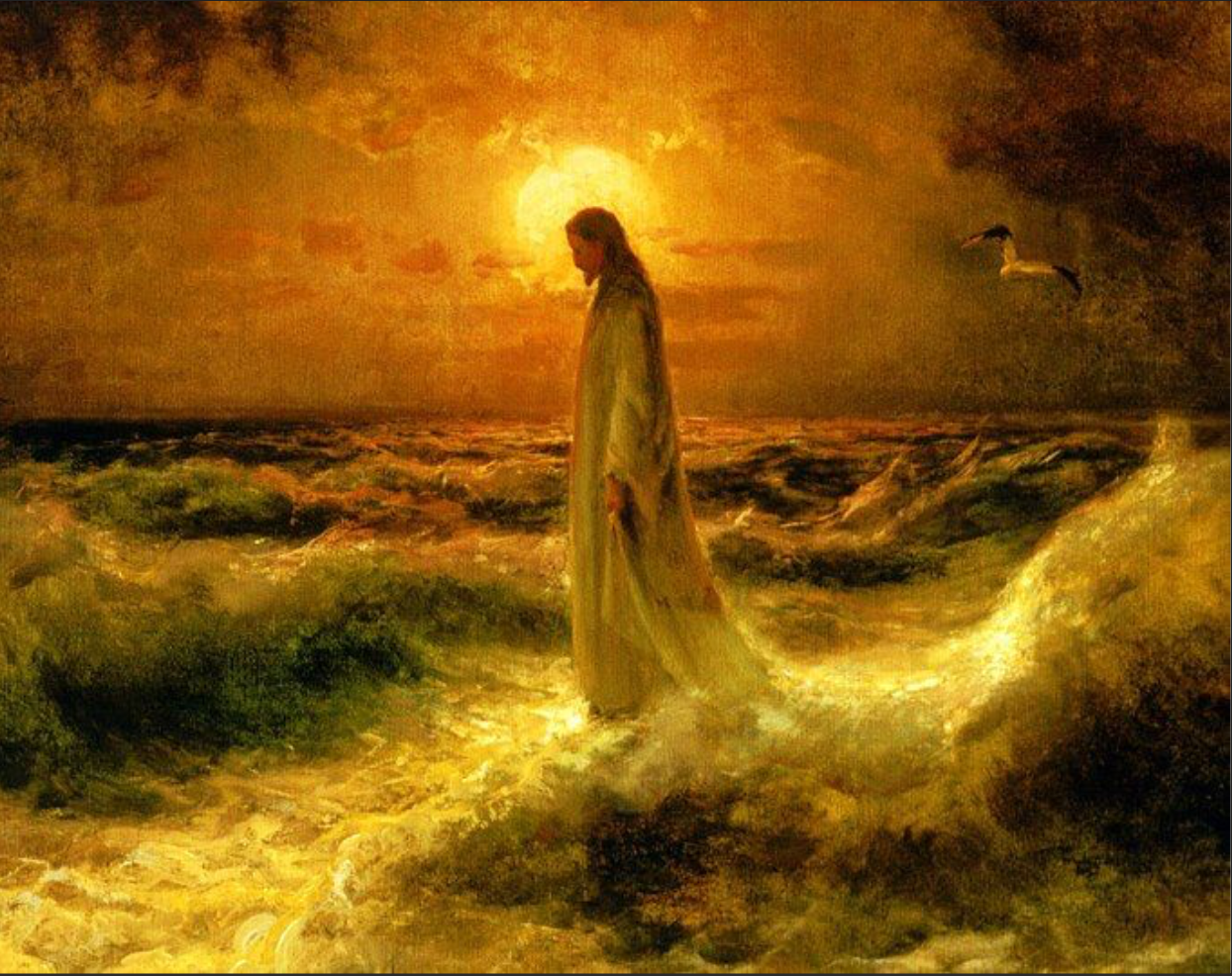Storm at Sea
Br Augustine offered us the following reflections this morning, only the second time he has preached here since his ordination as a deacon.
19th Sunday in Ordinary Time Year A
The image of Elijah waiting for God in our first reading is very much one we are familiar with as monks. As we all know Our Holy Father St Benedict began his monastic journey in the caves of Subiaco, seeking God. An element of that lifestyle still exists within our coenobitic lifestyle, especially with our daily mental prayer and Lectio Divina. We are very lucky that our monastery is set in this lovely location which provides quiet and calm to listen for the voice of God in the gentle breeze.
Yet in the Gospel a contrasting image is presented, we see our Lord calling over the raging storm to reassure His disciples. God is present on the stormy waters too. What great consolation especially during our current storm of pandemic which has created so much uncertainty and great upheaval, where the word unprecedented has become common place in our news broadcasts. Once again how lucky we are to be in here in the monastery somewhat protected from the effects of the storm outside. The disciples in their boat, appear, in St Matthew’s account, to be more concerned with the apparition coming towards them than the storm surrounding them.
However, it is St Peter who accepts the apparition as Christ and believing in Him, steps out of the protection of the boat to walk towards Him. No sooner than when St Peter begins his extra vehicular activity, he takes fright and begins to sink. Christ is there to save him; He may admonish St Peter for his doubt but nonetheless Christ is there. This is an important episode for us. St Peter as the image of the Church shows that sometimes we have to leave our place of relative safety and engage with the outside world in order to reach the Lord. The voice of the Lord can call both in the gentle breeze and within the strong headwind.
St Paul in the second reading states that he “would be willingly condemned and be cut off from Christ” in order to help his “brothers of Israel”, his “own flesh and blood.” This phrase appears puzzling but it shows St Paul’s fervent desire to share the Gospel, especially with his own people. He of course realises it is impossible to cut himself off from Christ in order to make them believe but this highlights how important Christ is as the fulfilment of all that was promised to Israel. Like St Peter he is prepared to step out into the storm for Christ. We should be prepared to do the same for our brothers and sisters, our own flesh and blood, of this once proudly Christian country.
The disciples, at least a third of them, were seasoned fishermen, they would not have gone out onto the lake if the conditions looked as if they were going to turn bad. There would then, most likely, have been other boats present on the water during the storm. They too would have benefited from the calming of the wind when St Peter and Christ got into the disciples’ boat. My Ecclesiology professor would frequently suggest that although the other boats benefited from the calming of the storm, they did not know why it happened. We know because we have both Christ and St Peter clearly in our boat. Whether in the midst of the storm or the calm that will come afterwards, we must take Christ’s words to heart “Courage! Do not be afraid!”










